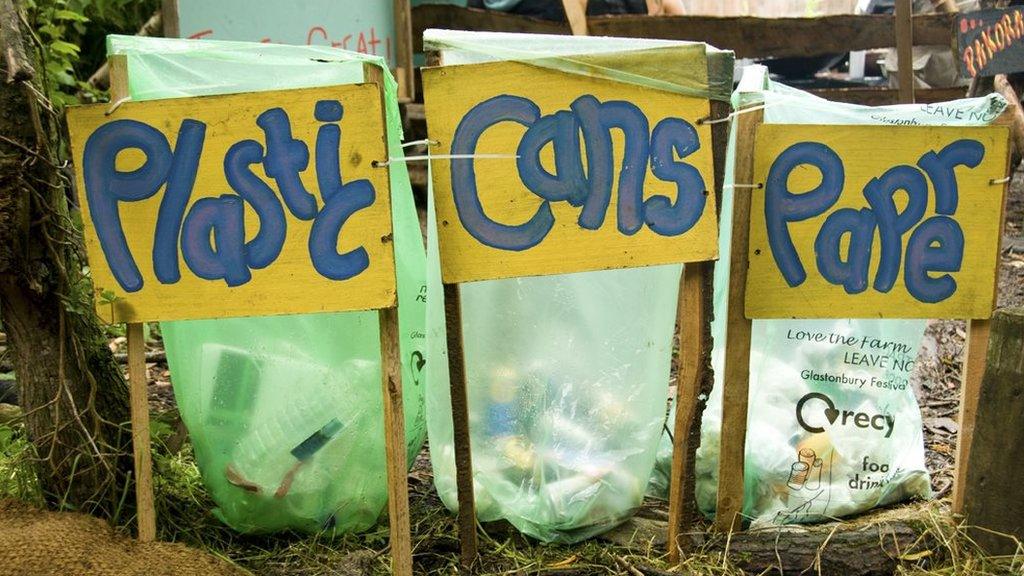Plastic pollution: 'Mission to eradicate' plastic in canals
- Published
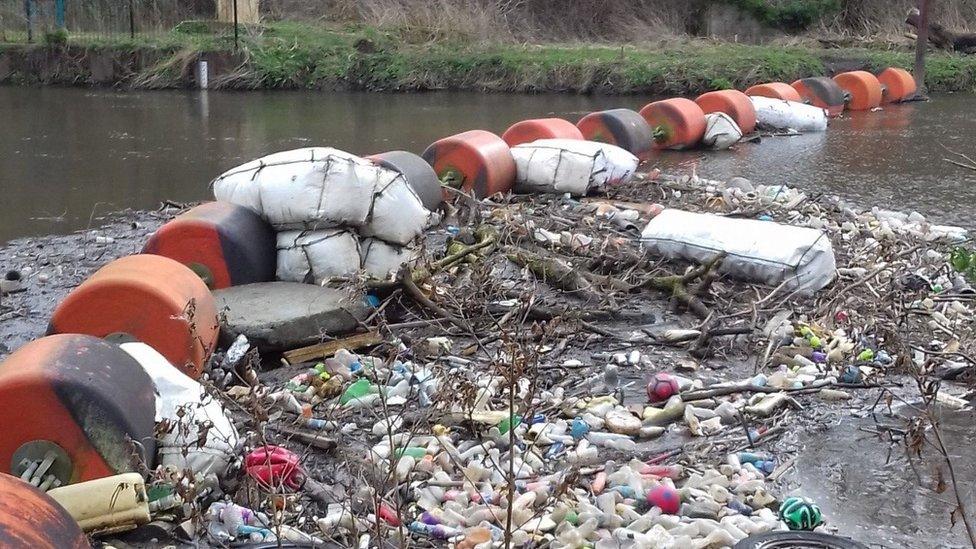
The Canal and River Trust wants people to take action to "help tackle the global plastics crisis"
The canals and rivers of England and Wales could be plastic-free in a year if every visitor picked up one piece of litter, a charity says.
The Canal and River Trust, external said 14 million items of plastic ended up in waterways each year.
The charity said it was "on a mission to eradicate plastic" and urged people to pick up any rubbish they find.
It added that canals and rivers acted as "plastic highways", which was a "huge problem for wildlife".
Canal crusaders clean up Leicestershire waterways
The trust worked with Coventry University to carry out research for a new report.
It took a "snapshot" of the amount of plastics and litter observed at representative locations along 2,000 miles of waterways and found plastics such as bags, bottles, disposable cups and food wrappers accounted for 59% of the waste.
Locations included Leicester, Birmingham, Sheffield, Burnley, Devizes, Tottenham Hale, Torfaen, Milton Keynes, Manchester, Ellesmere Port, Brentford, Worcester, Stratford-upon-Avon, Liverpool, Hemel Hempstead, Oxford and Erewash.
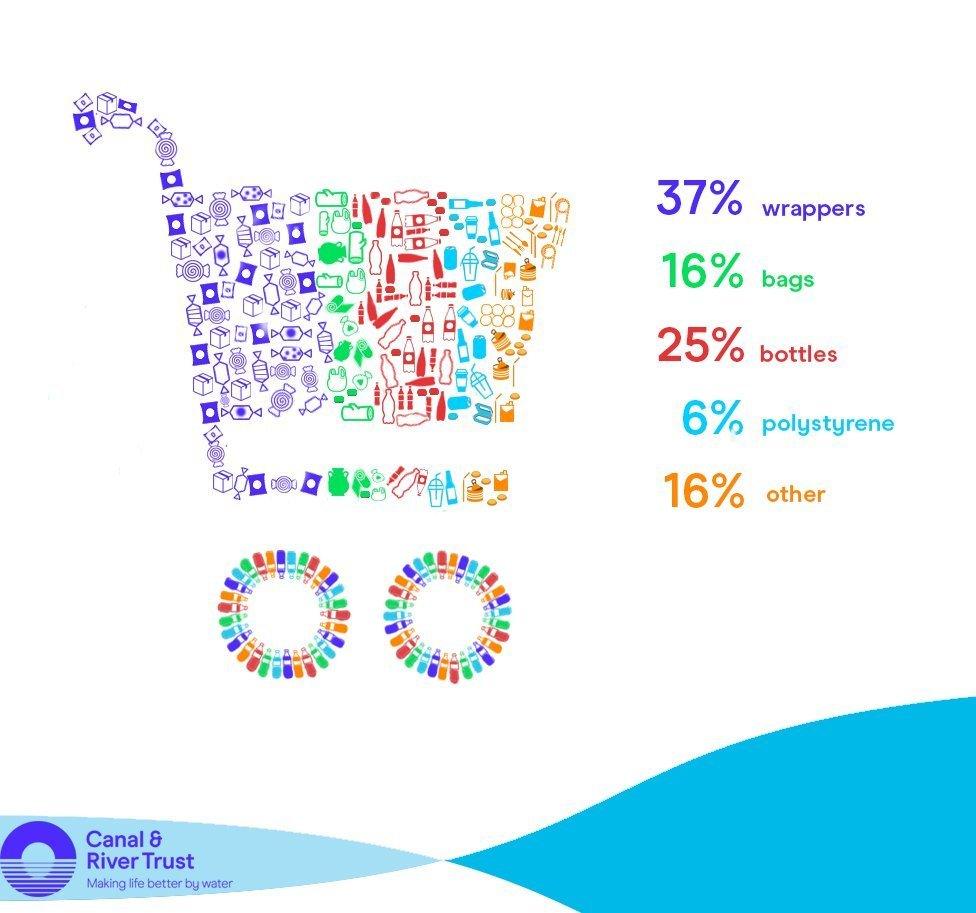
Peter Birch, national environmental policy advisor at the trust, said: "By taking a little care of their local waterway, everyone can have beauty on their doorstep.
"The Canal and River Trust is on a mission to eradicate plastics from our vast network of canals and rivers - helping us all to live in better, more beautiful neighbourhoods, whilst tackling a global issue, and making life better by water."
The latest study found litter was being dropped over boundary walls from nearby buildings, off bridges and being blown or washed in from areas near the waterways.
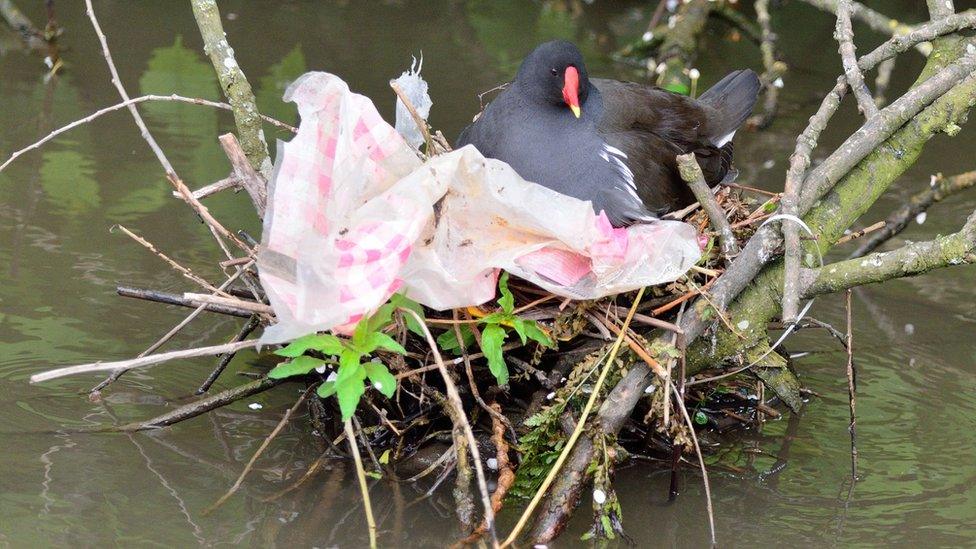
The charity said the volume of plastics in its waterways was "a huge problem for wildlife"
The trust said it made a great effort to minimise litter along waterways and emptied 900 public litter bins more than 46,000 times annually.
Volunteers for the charity spend more than 100,000 hours clearing litter from towpaths and canals each year.
- Published18 May 2019
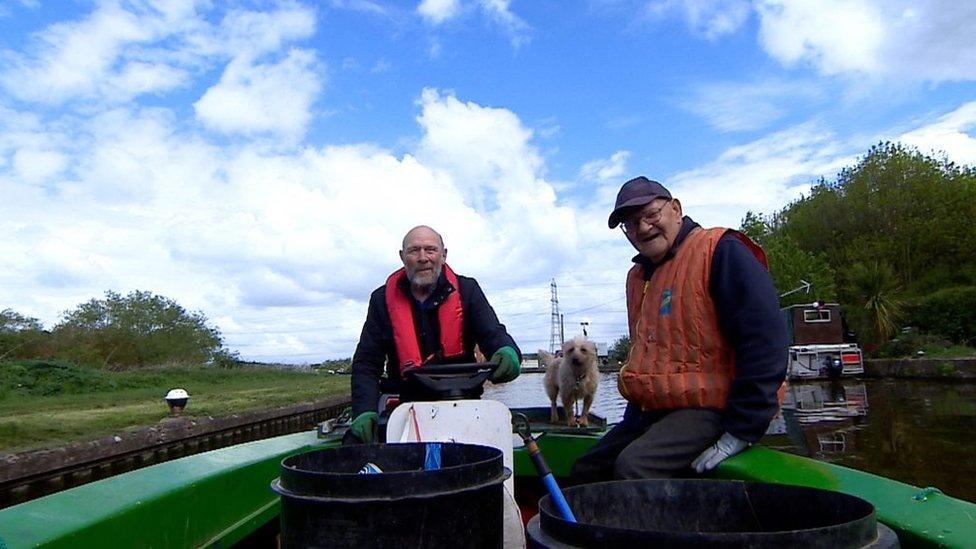
- Published4 June 2019
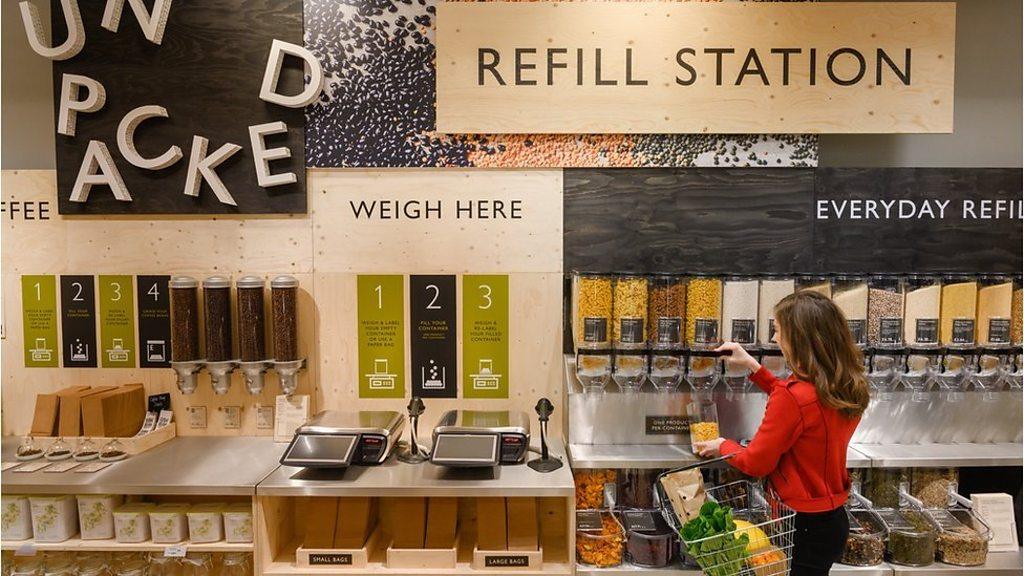
- Published3 June 2019
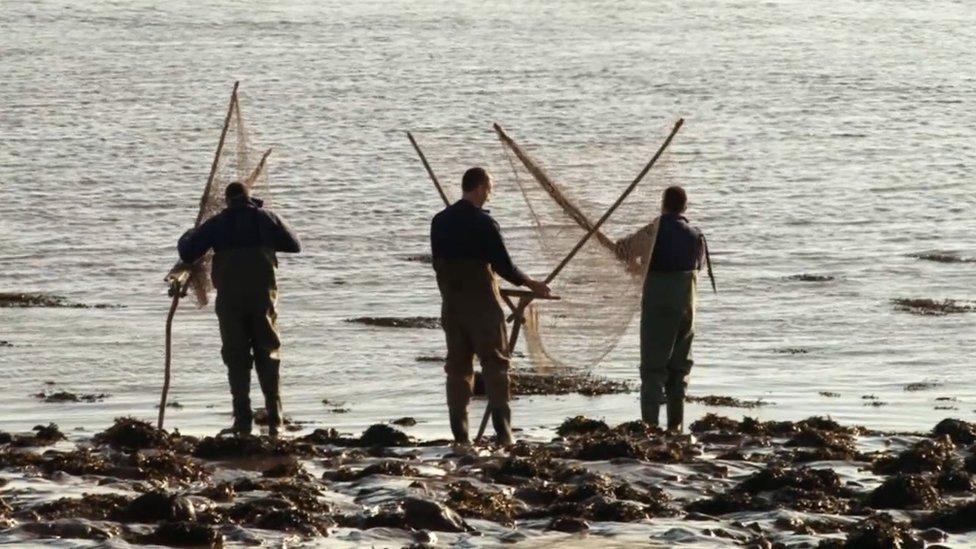
- Published24 May 2019
